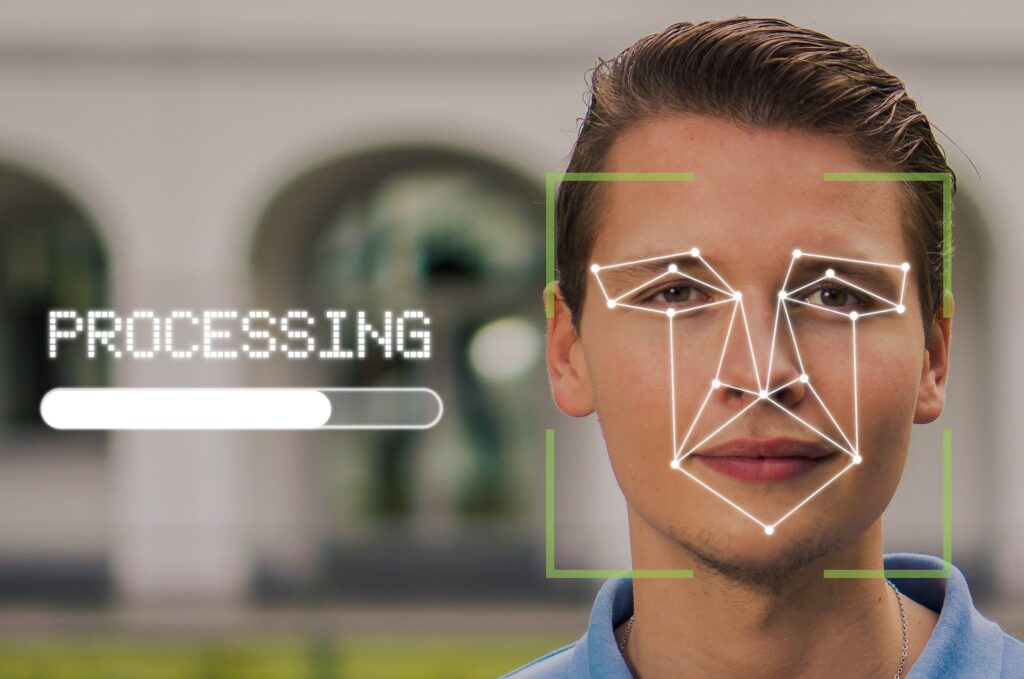A big biometric security company in the UK, Facewatch, is in hot water after their facial recognition system caused a major snafu – the system wrongly identified a 19-year-old girl as a shoplifter.
This embarrassing incident led to public shaming and resulted in the girl being banned from all stores using Facewatch’s technology. She’s fighting back by suing Facewatch and the store that banned her based on faulty identification.
Sara, a young woman who wishes to protect her identity, is suing Facewatch and Home Bargains in UK’s first legal challenge to facial recognition surveillance. In February, while shopping at a Home Bargains store in Manchester, staff confronted and ejected her based on a false identification by Facewatch’s system.
“Within less than a minute, I’m approached by a store worker who comes up to me and says, ‘You’re a thief; you need to leave the store’,” Sara said. “I have never stolen in my life, and so I was confused, upset and humiliated to be labelled as a criminal in front of a whole shop of people,” she said in a statement.
Her bag was searched, and she was then led out of the store and banned from all stores using the technology. Sara recounted the ordeal, stating, “I was just crying and crying the entire journey home… I thought, ‘Oh, will my life be the same? I’m going to be looked at as a shoplifter when I’ve never stolen.”
Facial Recognition: Boon or Bane for Crime Fighting?
Facewatch later wrote to Sara and acknowledged it had made an error. Several stores in the UK, including Costcutter, Budgens and Sports Direct, rely on Facewatch to identify shoplifters.
Both Facewatch and Home Bargains refused to comment on Sara’s specific case, but Facewatch maintained its technology deters crime and safeguards employees. Meanwhile, Sara is taking Facewatch and Home Bargains to court with the help of digital rights group, Big Brother Watch.
Big Brother Watch also supports another legal challenge against facial recognition, this time brought by Shaun Thompson, a London anti-knife crime community worker, against the Metropolitan Police.
The organisation claims these cases are just the tip of the iceberg, with more people seeking help after misidentification by facial recognition systems, like the one used by the Metropolitan Police on Thompson, who was detained for 30 minutes based on a mistaken match.
Facewatch acknowledged the misidentification. While it boasts a vast network of cameras in retail stores, the technology continues to face criticism from both civil rights groups and British Parliament members. Despite concerns about its accuracy in identifying people, Facewatch technology isn’t limited to retailers.
Joined by BBC, London police deployed a van with facial recognition cameras mounted on its roof in Bethnal Green. These cameras could capture thousands of faces from passersby, searching for matches against a police watchlist. Officers could approach and potentially arrest the individual if a match occurred.
The Rise of Facial Recognition in Policing
The Metropolitan Police reported six arrests made on the day of filming with the help of the facial recognition van. These arrests included individuals wanted for various offences, such as breaching sexual-harm prevention orders, grievous bodily harm, and assaulting a police officer.
Speaking to the BBC, Lindsey Chiswick, director of intelligence for the Met, heaped praise on the technology’s speed. “It takes less than a second for the technology to create a biometric image of a person’s face, assess it against the bespoke watchlist and automatically delete it when there is no match,” she said.
The BBC spoke to several people approached by the police who confirmed that the system had correctly identified them – 192 arrests have been made so far this year. However, civil liberty groups remain concerned about its accuracy.
They point to cases like Shaun Thompson’s, who works for youth-advocacy group Streetfathers. Thompson had no idea he was flagged as a suspect when he walked by a van near London Bridge in February, only to be stopped by police seconds later. This incident highlights the potential for mistaken identification with this technology.
Despite concerns about accuracy and potential misuse, facial recognition technology seems poised for a surge in popularity. California-based restaurant CaliExpress by Flippy now allows customers to pay for their meals with a simple scan of their face, showcasing the potential of facial payment technology.
The technology could transform the travel industry as well. The UK Border Force will soon trial facial recognition technology at airports, offering passport-free travel for departing and arriving passengers.
>>> Read full article>>>
Copyright for syndicated content belongs to the linked Source : IBTimes – https://www.ibtimes.co.uk/uk-woman-mistaken-shoplifter-facewatch-now-shes-banned-all-stores-facial-recognition-tech-1724785
